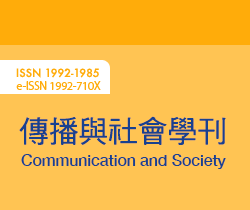 |
| July 2018 |
 |
45 |
|
| 研究論文Research Articles |
| 社交媒體上的人情運作:觀念、行動和結果 |
| Renqing in Social Media: Ideas, Actions, and Outcomes |
|
|
|
 |
 (4637)
(4637)
|
| 作者 |
曾婉情、李松、林升棟、李偉娟、李亞偉、王婷婷、劉宇航 |
| Author |
Wanqing ZENG, Song LI, Shengdong LIN, Weijuan LI, Yawei LI, Tingting WANG, Yuhang LIU |
| 關鍵詞 |
社交媒體、人情、報、關係 |
| Keywords |
social media, renqing, bao, guanxi |
| 摘要 |
中國是一個人情社會。社交媒體的普及為研究人情的線上運作提供了現實的觀察視角。本文發現:人們在觀念上普遍將朋友圈中的請托視做人情往來,涉及關係判斷、報之規範、代價考量、關係網內他人行動等心理過程;差序關係影響交易法則和請托效果,長期導向主導熟人的行動,短期導向主導陌生人的行動;多數情況下,關係理性與個體理性造就的結果迥異。研究人情運作的觀念、行動和結果,有助於探索符合國情的政治動力機制。 |
| Abstract |
Chinese society is characterized by renqing. The popularization of social media provides an opportunity to observe the operation of renqing online. The findings of this study show that Chinese usually consider seeking help from online friends in the ideological exchange of renqing, which involves the judgment of guanxi, the norm of bao, the appraisal of costs, and other actions inside the network. The hierarchical arrangement of these concepts has significant effects on the rules of exchange and the willingness to help. The actions of acquaintances are characterized by a long-term orientation, whereas those of strangers are characterized by a short-term orientation. In most cases, the outcomes of the rationality of guanxi and the individual’s reasoning are very different. In this study, the findings regarding the ideas, actions, and outcomes of renqing could be helpful in exploring the mechanism of political power in contemporary China.
本文引用格式
曾婉情、李松、林升棟、李偉娟、李亞偉、王婷婷、劉宇航(2018)。〈社交媒體上的人情運作:觀念、行動和結果〉。《傳播與社會學刊》,第45期,頁121–144。
Citation of this article:
Zeng, W., Li, S., Lin, S., Li, W., Li, Y., Wang, T., & Liu, Y. (2018). Renqing in social media: Ideas, actions, and outcomes. Communication & Society, 45, 121–144.
|
|
|
 |
| No.74 2025 October |
 |
| No.73 2025 July |
 |
| No.72 2025 April |
 |
| No.71 2025 January |
 |
| No.70 2024 October |
|
